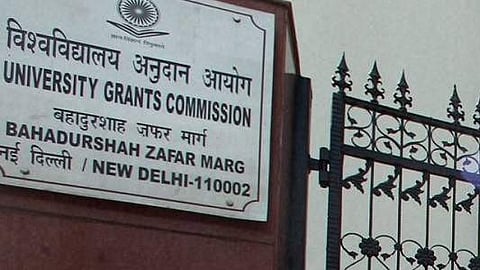

The University Grants Commission (UGC) has released the Draft UGC (Minimum Standards of Instructions in the Award of UG and PG Degrees) Regulations 2024.
"In exercise of the powers conferred by clauses (f) and (g) of sub-section (1) of Section 26 read with clause (j) of section 12 of the University Grants Commission Act, 1956 (3 of 1956) and in supersession of UGC (Minimum Standards of Instruction for the Grant of the First Degree through Formal Education) Regulations, 2003 and UGC (Minimum Standards of Instruction for the Grant of the Master’s Degree through Formal Education) Regulations, 2003 and its amendments dated March 2008 and May 2014, the University Grants Commission hereby makes the following Regulations," the draft read.
These new provisions aim to transform its higher education system into a more flexible, inclusive, and multidisciplinary model, meeting global academic standards while accommodating diverse learners.
A few highlights from the draft are:
- Higher Education Institutions (HEIs) that are prepared to manage biannual admissions can admit students twice a year — once in July/August and again in January/February
- Students can now exit and re-enter degree programmes at different stages, offering more flexibility in their academic journey
- The regulations include provisions for recognising prior learning, allowing students to build on their previous knowledge and experiences
- Students will have the option to pursue two undergraduate or postgraduate programmes at the same time, promoting multidisciplinarity
- Irrespective of their past educational background, students will be eligible to enroll in any UG or PG programme as long as they clear the relevant entrance examination at the national or university level
- HEIs will have the autonomy to decide on attendance requirements, based on the nature of the programme, in consultation with their statutory bodies
- A student must earn at least 50% of their credits in their major discipline for an undergraduate degree. The remaining 50% can be allocated to skill development, apprenticeships, or multidisciplinary subjects
- The duration of an undergraduate degree can vary between three to four years, while postgraduate degrees can range from one to two years. The regulations also introduce options for Accelerated Degree programmes (ADP) and Extended Degree programmes (EDP)
